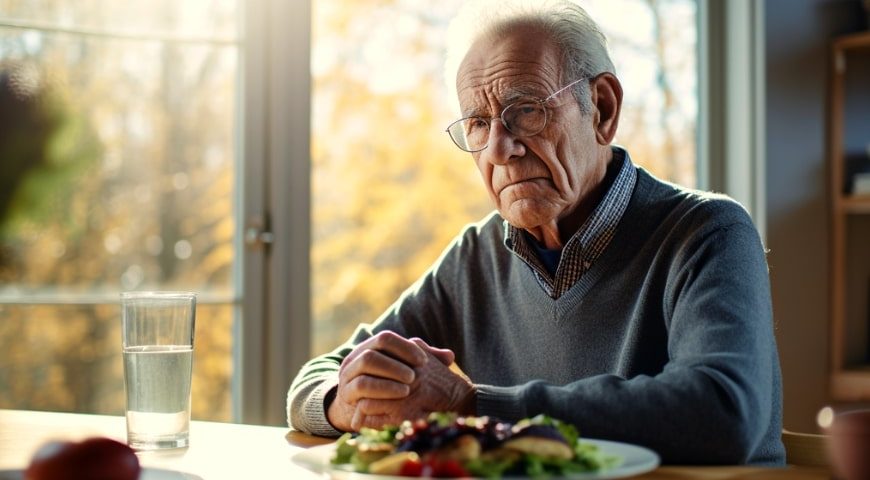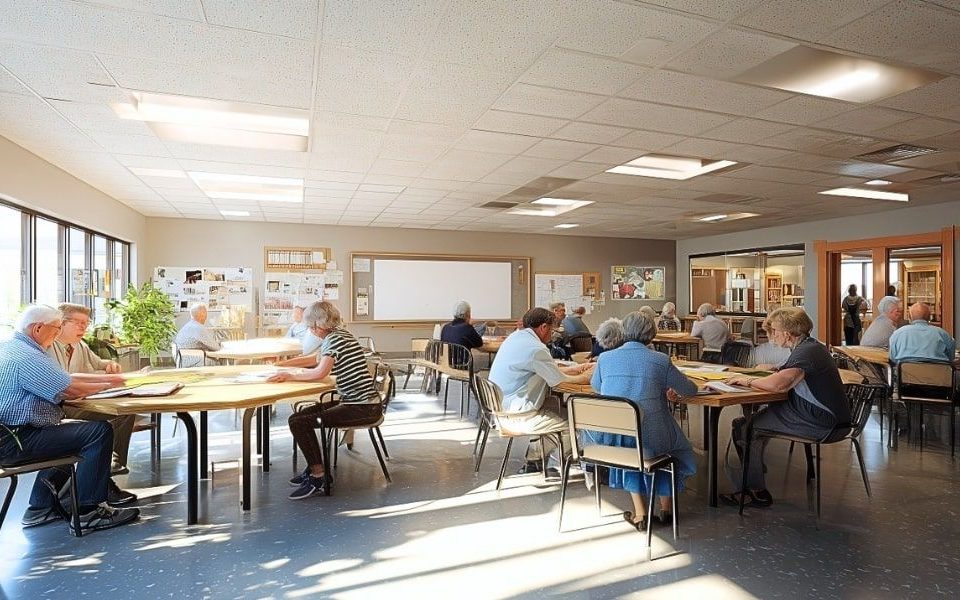
It can be troubling when you notice a loss of appetite in seniors. You know nutrition is important, and you might worry that it is a symptom of a serious illness. Being aware of and addressing the issue is crucial for protecting the health of seniors. This post will explore some reasons seniors might lose their appetites. It will also provide some tips that may help.
Overcoming Loss of Appetite in Seniors
The first step in addressing a senior’s loss of appetite is to understand the underlying causes. Sudden changes in appetite should prompt a visit to the doctor to rule out serious health issues. Conditions like Alzheimer’s, Parkinson’s, thyroid disorders, and cancer can impact taste and appetite.
Lack of Exercise
Regular physical activity plays a vital role in stimulating appetite. Encouraging seniors to engage in light exercise can contribute to a healthier appetite.
Dehydration
Seniors are often prone to dehydration due to age-related changes or medications. Ensuring they stay hydrated can positively influence their desire to eat.
Lack of Routine
Establishing a daily mealtime routine provides structure. It puts the body on a clock and trains it to expect food at certain times. Doing so can make seniors more receptive to eating at mealtime.
Inability to Prepare Meals
Seniors living alone may face challenges in preparing meals. Offering assistance or exploring convenient meal options can be beneficial.
Loss of Taste
Age-related changes can dull taste buds, making food less appealing. Experimenting with flavorful and textured foods may help.
Now that we know some of the common causes, let’s explore more strategies to help.
Create Appealing Meals
Focus on visually appealing and flavorful meals that cater to the senior’s preferences. Varied and colorful dishes can make eating more enticing.
Encourage Social Eating
Share mealtimes with seniors to make the experience more enjoyable. Social interaction during meals can positively impact their appetite.
Adapt to Changing Abilities
Recognize and address challenges in chewing, swallowing, or eating. Modify diets or consider assistive devices to make eating easier.
Promote Hydration
Ensure seniors have access to an adequate supply of fluids throughout the day. You could also set alarms to remind seniors to drink water.
Address Emotional Well-being
Loneliness, depression, or feelings of loss of control can contribute to a decline in appetite. Providing emotional support and fostering a positive mealtime environment is crucial.
Bottom Line
Loss of appetite in seniors is a multifaceted issue that demands a compassionate approach. Along with understanding the cause, you may need to try various strategies to restore a senior’s appetite.
The Mountain Side of Warm Springs fosters an environment of purpose and independence for our residents. Our goal is for every resident to be comfortable and confident in the community. Click here to learn about our customized services. You can also click here to learn about our suites.
Schedule a visit to our senior care community by clicking here.
Thanks for visiting!



